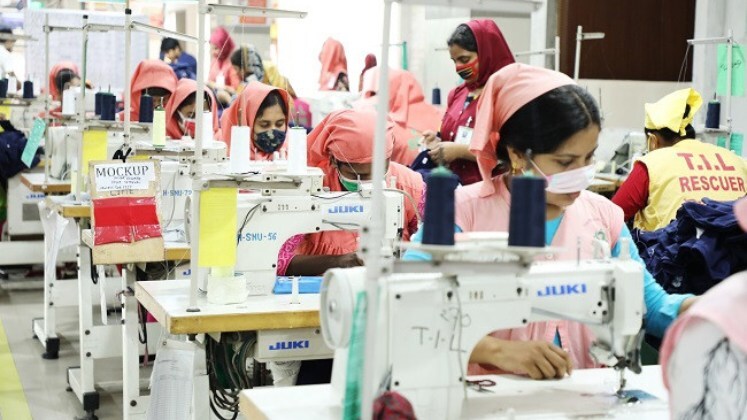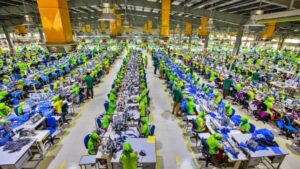
Consumer confidence seems to be stable despite recent turmoil in Bangladesh’s ready-made garment (RMG) industry. Although buyers and retailers have expressed concerns about the current state of insecurity, they are still dedicated to the nation’s clothing capabilities as they wait for the ongoing labour unrest to be resolved.
There is a nervous mood in the textile and clothing sector, and stakeholders are unable to declare with confidence that business as usual has resumed. Nonetheless, a lot of consumers are saying they want to keep sourcing from Bangladesh because they believe the country’s RMG goods are of high quality. In response to comments in the local media that suggested a possible movement in orders away from Bangladesh, industry leaders and sourcing house entrepreneurs are emphasising that customers are ready to wait for the situation to normalise.
Although some companies may consider shifting their sourcing to nations with somewhat higher prices, they are aware of the dangers associated with possible supply chain interruptions. Bangladesh’s enormous production capabilities are still unmatched, making it difficult for other countries to fulfil a sizable number of orders. After considering other options, brands typically return to Bangladesh, citing its competitive pricing and superior production capabilities, according to historical trends.
One of the main characteristics of Bangladesh’s RMG sector is its strength in unity, as its stakeholders, employees, and entrepreneurs all have a stake in its success. The industry is being urged by experts to use the knowledge of seasoned leaders while encouraging innovation from newcomers. Furthermore, it is believed that encouraging positive communication between factory owners and employees is essential to settling conflicts and preserving stability.
One of the most important factors for the nation’s economic health and the RMG industry’s resurgence is political stability. Businesses and investors may feel more secure and confident in a more stable political climate.
Clothing factories must continue to operate in order to maintain buyer confidence and guarantee a steady supply of orders, as frequent closures could erode trust even further. Regardless of pricing structures, buyers are more likely to place orders when RMG plants are operating smoothly.
To survive the current crisis and maintain its position as the world’s top exporter of clothing, Bangladesh will need to address these issues and foster an atmosphere that is conducive to the RMG sector.






